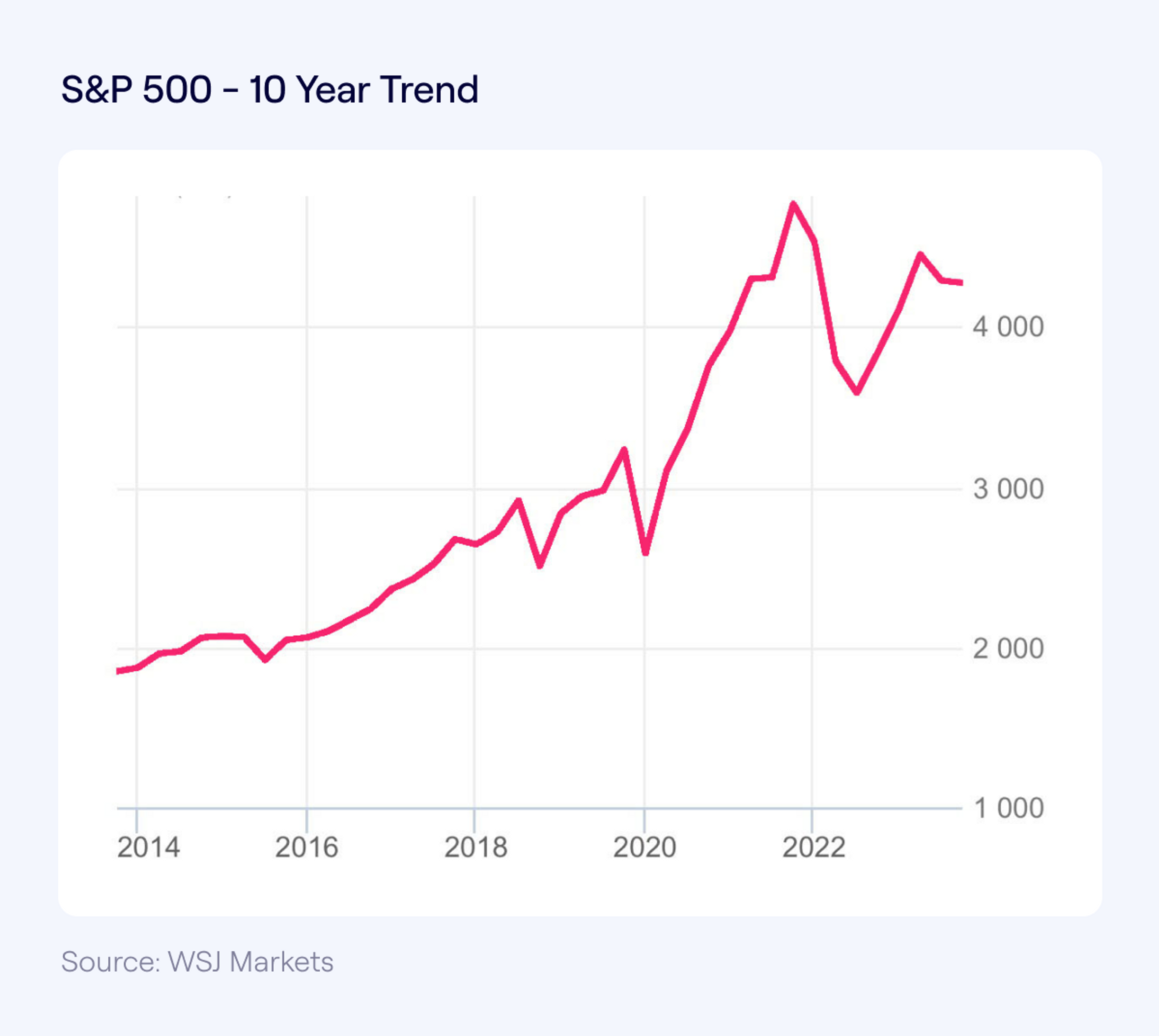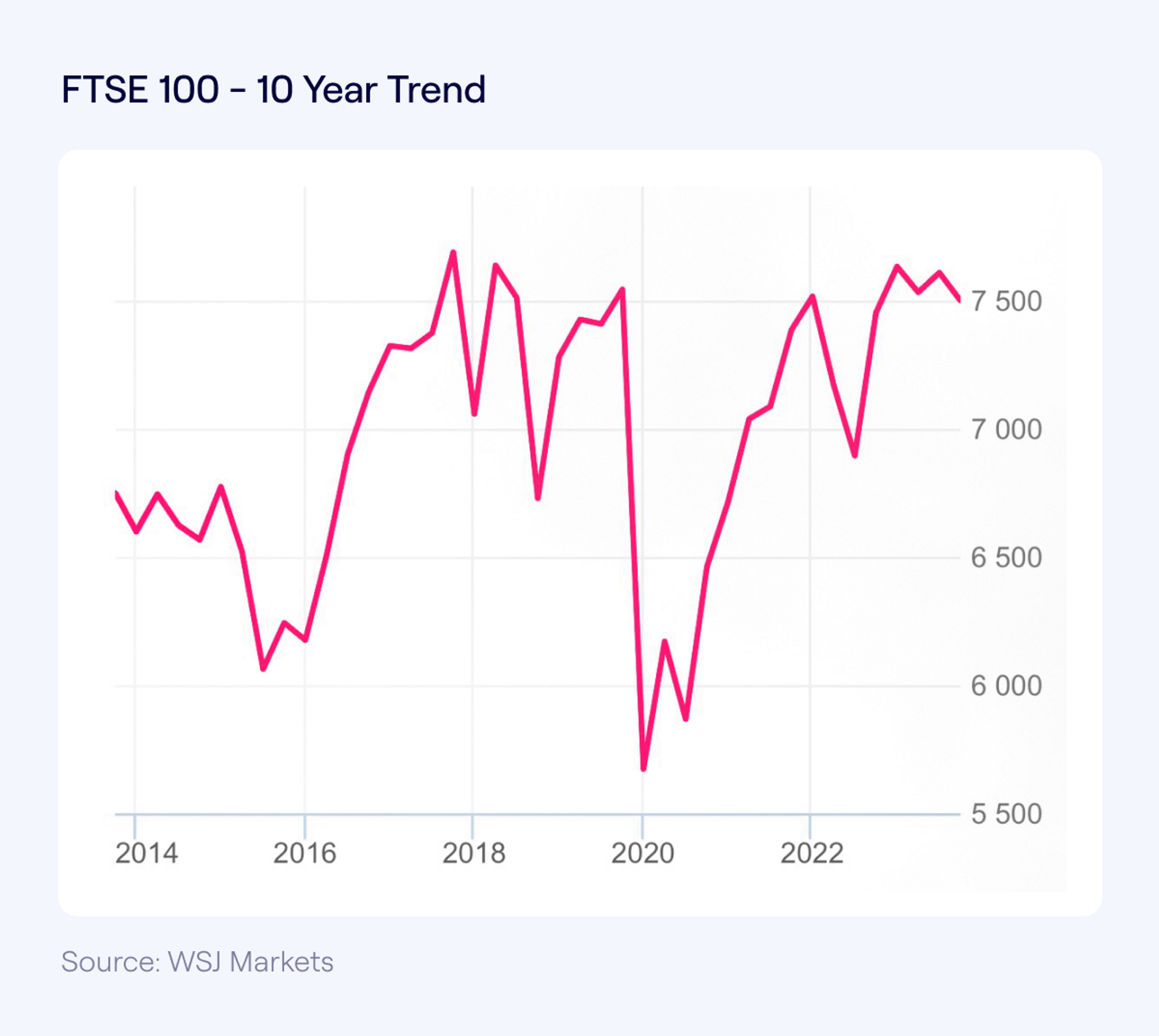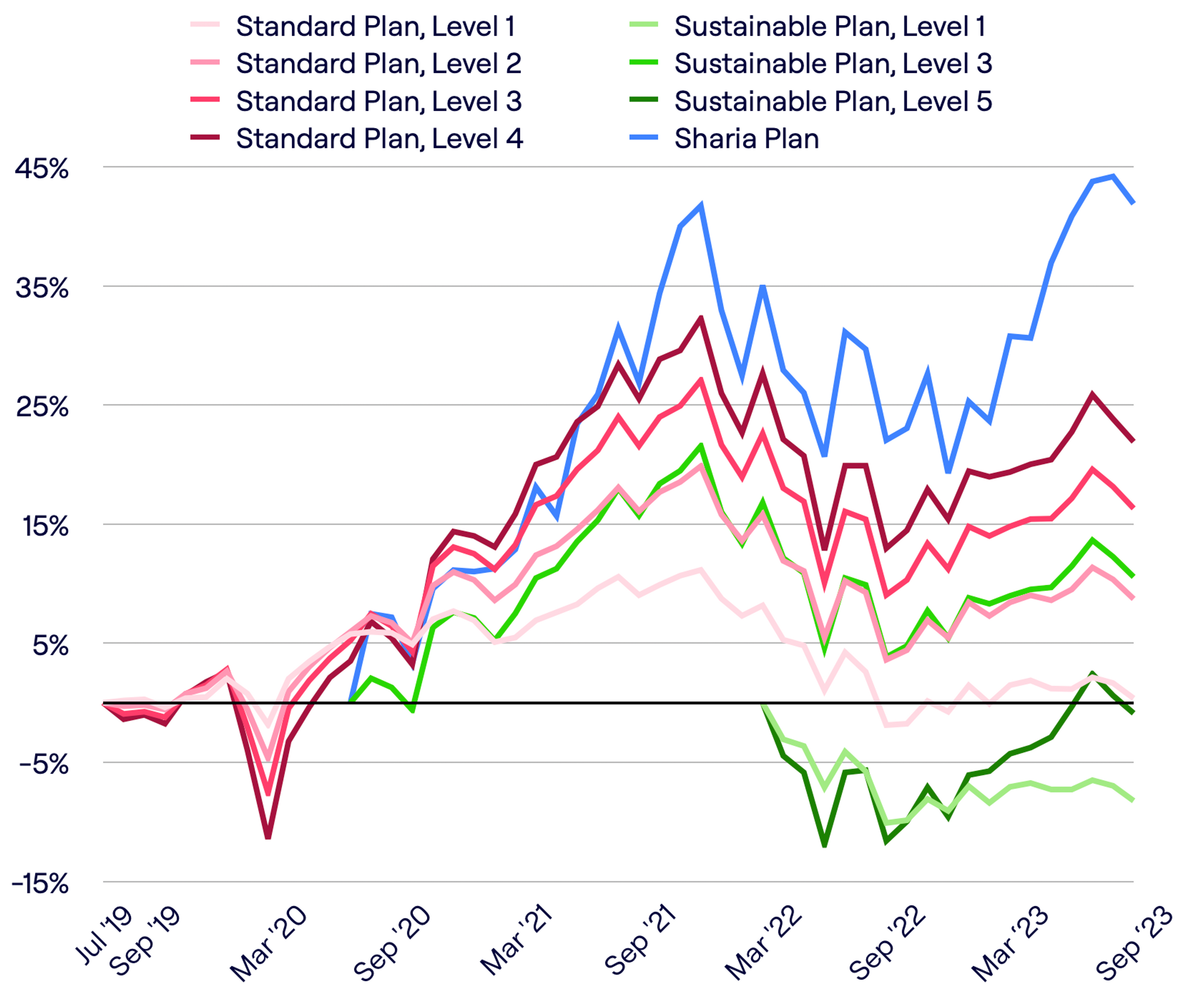Pension Performance: Q3 2023 Quarterly Update

It’s been a rollercoaster! As we bid farewell to the third quarter, US equities made headlines with a noticeable dip. After a brilliant streak of five consecutive months with the S&P 500 showcasing stellar performance, US stocks hit a snag, diving in both August and September.
Fears over what the US central bank might do next with interest rates was largely behind that decline, but investors also had to contend with strike action in the film and car industries and a political wrangle that threatened to trigger a US government shutdown.
The UK stock market fared better. Although shares fell in August, which is typically a quiet month as investors head for their holidays, UK equities rose in July and September.
The main driver behind this was interest rates. Like the US, the British central bank opted to hold interest rates steady in September. The difference was this move was unexpected, with most investors believing the Bank of England would choose to increase them.
The decision was immediately positive. Not only do rising interest rates suck money out of the economy but they are particularly bad for companies, such as the country’s biggest house builders, as they result in rising mortgage costs and falling house prices. And so the pause was welcome.
European equities also struggled, and were dragged down by the problems facing China, the world’s second largest economy. After three years of strict ‘zero Covid’ lockdowns the expectation was that the Chinese economy would now burst into action and help propel the stock markets of other major economies globally, but that has not yet come to pass.
US

Remember the golden run of five months of straight gains from March to July for the S&P 500? Well, August and September decided to change the narrative.
On top of the concerns about what the Federal Reserve might do with interest rates, investors also had to grapple with the threat of a government shutdown, which made them jumpy and created unknowns that they do not like. The shutdown threat stemmed from a funding dispute between the Democrats and the Republicans, which would have placed tens of thousands of federal employees on furlough without pay and suspended several government services.
A deal to keep the government open was struck at the 11th hour but stock markets hate this sort of uncertainty and the fact it took so long to sort out had already knocked investors’ confidence.
Eurozone
The two-month winning streak for European equities met a speed bump in August and September.
Retail sales fell in Germany, Europe’s biggest economy, while economic confidence among consumers and businesses within the eurozone decreased for the fifth consecutive month in a row, according to data from the European Commission.
Some good news came at the very end of the quarter, however, with figures showing the Eurozone’s annual inflation rate slowed to 4.3% year-on-year in September - the lowest it has been for almost two years.
This is still well above the 2% target set by the European Central Bank, but it gives investors hope that the central bank may be able to cut rates and inject some life into the economy and the stock market over the next quarter.
UK

Britain seems to dance to its own beat. While other giants stumbled, the UK market showcased resilience.
The Bank of England’s surprise decision to hold interest rates steady at 5.25% was great news for the country’s biggest house builders, as rising rates result in increasing mortgage costs and falling house prices. It meant the likes of Taylor Wimpey, Persimmon and Bellway all posted healthy gains during September.
There were also strong rises for energy giants Shell and BP, and miners Glencore and Rio Tinto, after a North Sea oil field was given the green light for drilling by the UK government.
The controversial Rosebank offshore development off Shetland was granted consent by the regulator, the North Sea Transition Authority, at the end of September. Found 80 miles west of Shetland, Rosebank is Britain's biggest untapped oil field and is estimated to contain up to 300 million barrels of oil.
Penfold performance
Although the FTSE 100 rose during the quarter, the decline of the S&P 500 dented the performance of all our pension plans over the three months. The US is the world’s largest economy and any falls in US stocks always typically outweigh rises elsewhere.

However, the silver lining remains; our pension plans showcased admirable strength, a testament to their resilience during difficult markets.
Penfold’s funds are built on strategically diversified portfolios designed to decrease risk exposure, limit potential losses, and improve overall investment performance.
Penfold app
If you’re not already using it, there’s so much you can do with the Penfold app. You’ll see your total pot value instantly when you open the app and monitoring the investment performance of your pension takes just one tap more – choose the ‘Your Plan’ option along the bottom of the screen.
The home screen also shows the activity on your pension – just like your bank statement. Plus, you can top up your pension with spare cash anytime just by tapping the ‘add money’ option. Our app puts your pension in your pocket, so it’s there whenever you need it.
Risk warning
With investments, your capital is at risk. The value of your investment can go down as well as up, and you may get back less than you invest. This information should not be regarded as financial advice and past performance is not a reliable indicator of future performance.